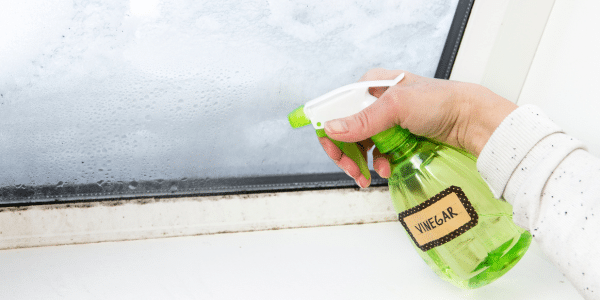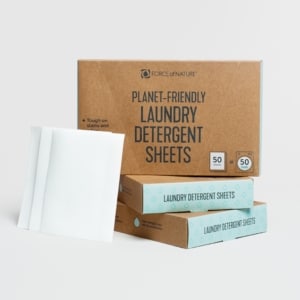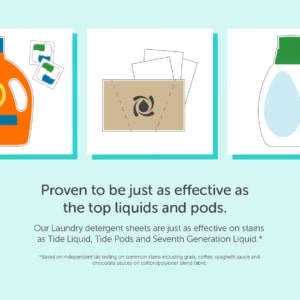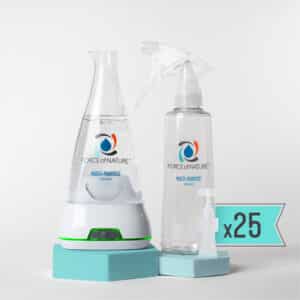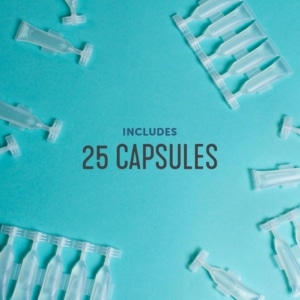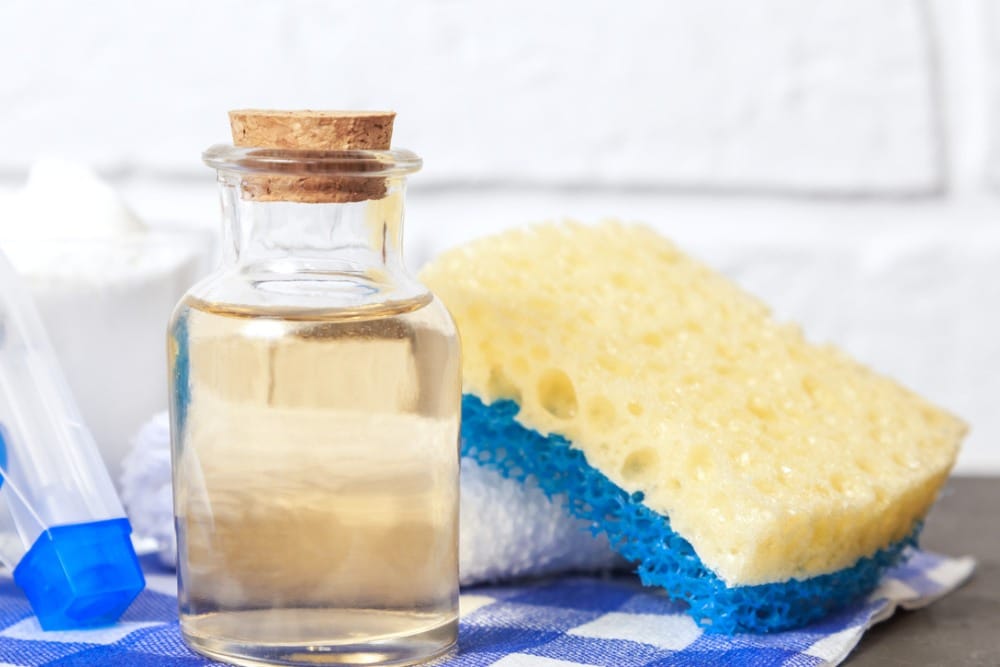
Grandma was right – vinegar is a pretty amazing multi-tasker! What else can remove soap scum and grass stains, dissolve glue, and even make meringue fluffier and prevent cheese from molding?
But, is household cleaning with vinegar safe? Lots of parents are using vinegar to make DIY vinegar cleaning solutions because they’re so concerned about toxic chemicals around their children and pets. However, for cleaning around the home, vinegar does have some surprising drawbacks to keep in mind.
DIY Cleaning Products With Vinegar: The Drawbacks
1. Vinegar doesn’t sanitize or disinfect
When you’re cleaning to kill germs that cause colds, flu & viruses, you’ll want to shelve your vinegar mix for its poor disinfectant properties. The reason is that vinegar is not an EPA-registered disinfectant or sanitizer, which means you can’t count on vinegar to kill 99.9% of bacteria and viruses.
Some limitations are that vinegar doesn’t disinfect MRSA, STAPH, and other nasty germs that can make your family sick. Vinegar DIY cleaners can leave behind as much as 20% of the germs that make families sick because it’s not potent enough to kill all of them.
A great example is rhinovirus, a group of viruses responsible for more than half of all colds. If you’re trying to reduce the chances your family gets taken down by a nasty cold or flu, opt for a sanitizer/disinfectant cleaning agent that can kill 99.9% of bacteria and viruses.
2. You have to be careful about concentrations
Yes, it’s absolutely safer than bleach, ammonia, or typical all-purpose cleaners, but vinegar contains acetic acid, so you have to be cautious about concentrations. It can burn the esophagus, stomach, eyes, and damage eye tissue, so you want to be careful with it around your little ones.
For example, a cup of white vinegar you’d find in your grocery store will contain 5 percent acetic acid. Cleaning vinegar will contain 6%. It may not seem like a lot, but the 1 percent difference can be a big deal.
3. Always, always rinse
DIY cleaning products with vinegar can corrode some surfaces over time, for example, window seals, dishwasher gaskets, and unsealed grout, so you have to take the extra step of rinsing those surfaces with water.
4. Vinegar can damage some of the surfaces in your home
Vinegar shouldn’t be used on many of the surfaces in your home. For example, you should never use vinegar on stone surfaces like granite, marble, limestone, onyx, or travertine because it will dull & etch the surface. The same goes for your wood floors, as the acidity in vinegar can lead to etching in the wood’s surface.
A better option is a natural cleaner like Force of Nature, which can be used to clean any sealed stone surfaces without the risk of dulling their shine.
5. It can be harmful to plants
Vinegar has a very low pH level which means it’s very acidic. If it’s used on or near certain plants, it can cause them to grow slower or even kill them.
Force of Nature, however, is safe to use on or around plants without any worries. In fact, you can even add it to your vase of fresh-cut flowers to make them last longer.
6. It smells like vinegar
Most people who turn to DIY cleaning products with vinegar complain about the awful smell that seems to linger from vinegar fumes.
Force of Nature has no added fragrances, just a light clean swimming pool scent.
The Bottom Line
Is vinegar a good cleaner? Yes, it’s one of the best stain removers for coffee makers and mineral deposits and has some great use cases.
Even though it has some limitations, we do love vinegar – after all, it’s a key ingredient in our own product! The main difference is that we supercharge it by using electricity to convert it, along with salt and water, into a natural cleaner, disinfectant, and sanitizer EPA registered for hospital & ICU use.
In fact, it’s the only EPA-registered disinfectant you can make on your kitchen countertop. It’s a medical-grade disinfectant that kills 99.9% of germs, and is even on EPA’s list N, the disinfectants approved for use against SARS-CoV-2, the cause of COVID-19. Force of Nature can be used on just about any surface and replaces kitchen, bathroom, glass & rug cleaners, deodorizers & disinfectants.
More questions? With all the talk around viruses and germs lately, you might be wondering the answer to this question: does vinegar kill viruses or get the answer to does vinegar disinfect?
Or, you might want the scoop on how Force of Nature kills viruses or to learn more about electrolyzed water (the Force of Nature technology).
And if you want to dig in even more, we’ve also got the scoop on how Force of Nature is safe to use on virtually any surface in your home, and about how Force of Nature actually works.
